7 Crazy Good Spice Pairings That’ll Make Your Ground Beef Chili Unforgettable
If you’ve ever stared into a pot of chili wondering why it just doesn’t pop like the ones you’ve had at cookouts or in restaurants, it might not be your meat — it’s what you’re spicing it with. In this article, we’re going to shake up your spice rack and turn your humble chili with ground beef into something legendary.
You don’t need a culinary degree to impress your friends with your chili skills. All you need are the right spices — and maybe a little bit of courage to mix things you wouldn't normally pair together. Let's dive into some unexpected but totally genius combinations!
Why Spices Matter in Chili
- Balancing Flavors: The best chilis are flavor bombs — sweet, spicy, earthy, and smoky all at once.
- Meat Enhancement: Ground beef has great fat content, which means it can carry and amplify spices beautifully.
- Texture & Mouthfeel: Certain spices add subtle crunch or depth that elevate your eating experience.
Visual Comparison: Basic vs. Bold Spice Profiles
| Basic Chili | Bold Chili |
|---|---|
| Cumin only | Cumin + Smoked Paprika |
| Chili powder from a bottle | Fresh garlic + Ancho chili powder + Cinnamon stick simmered in broth |
| No finishing spice | Pinch of flaky sea salt + Lime zest before serving |
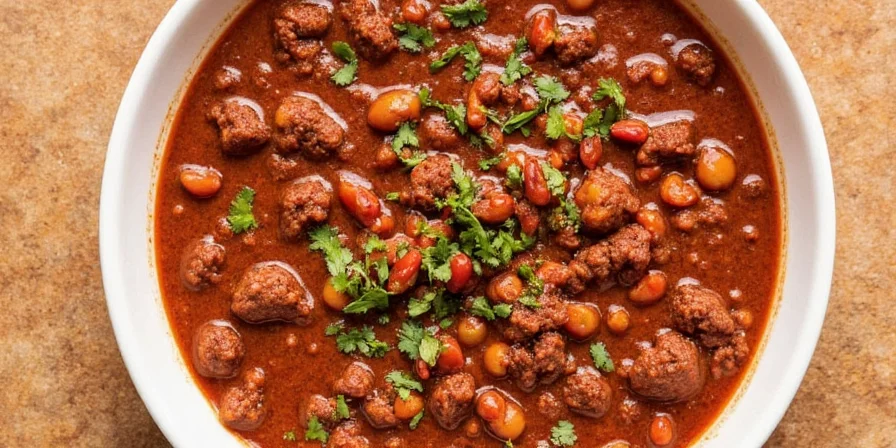
1. Smoked Paprika + Coffee Grounds = Dark Magic
If you want your chili to taste like it came out of a secret Texas campfire recipe, try adding a spoonful of smoked paprika along with a teaspoon of finely ground espresso beans. This combo gives your chili a rich, almost molasses-like depth without making it taste like coffee.
- Taste Profile: Earthy, smoky, slightly bitter-sweet
- Pro Tip: Use decaf if you're serving at night!
2. Cinnamon Stick Simmered in Broth = Warmth Bomb
Yes, cinnamon is usually for desserts. But here’s the twist: when you simmer a single cinnamon stick in your chili broth while cooking, it adds a subtle warmth that complements the beef beautifully.
- Taste Profile: Subtle sweetness, warming finish
- Pro Tip: Remove the stick before serving unless you want someone to bite into a woody surprise.
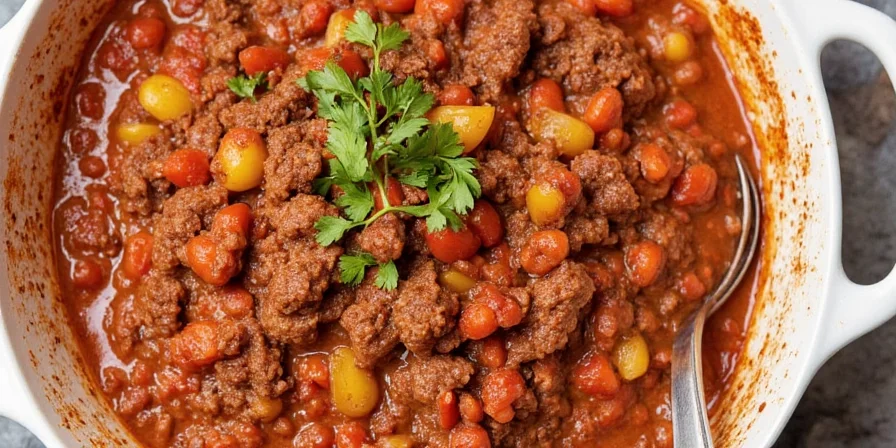
3. Chipotle in Adobo + Maple Syrup = Sweet Heat Symphony
The combination of smoky heat from chipotle peppers and the caramel notes from maple syrup creates a perfect harmony. Add about a tablespoon of adobo sauce and half a tablespoon of syrup to your chili near the end of cooking.
- Taste Profile: Smoky, tangy, slightly sweet
- Pro Tip: Adjust based on how much fire you want dancing on your tongue.
4. Cocoa Powder + Cayenne = Chocolate Fire
For those who love mole-inspired flavors, adding unsweetened cocoa powder and a pinch of cayenne will make your chili taste like a Mexican street dream. This isn’t chocolate soup — it’s a deep, savory blend with just a hint of cocoa magic.
- Taste Profile: Rich, complex, subtly bitter-chocolatey
- Pro Tip: Mix cocoa with water first to avoid clumping.
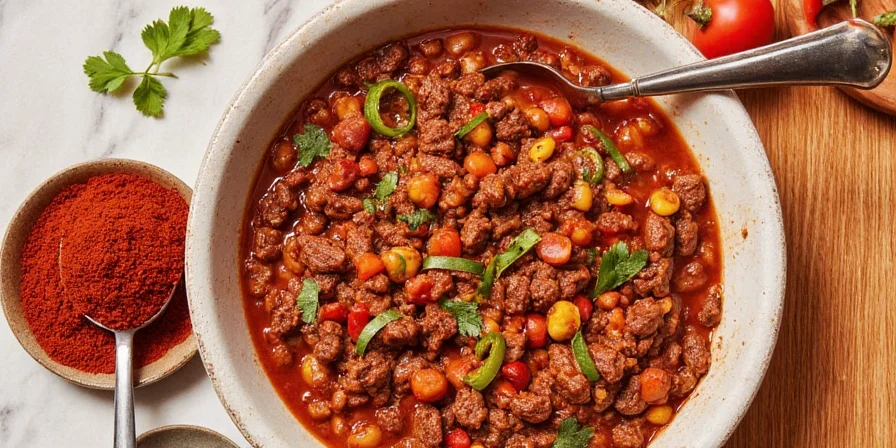
5. Garam Masala + Lime Zest = Global Fusion
This one might raise eyebrows, but trust us — Indian garam masala brings a warm complexity to the table, especially when paired with lime zest sprinkled on top just before serving.
- Taste Profile: Floral, aromatic, citrus-forward
- Pro Tip: Only use a small amount (1/2 tsp) of garam masala so it doesn’t overpower the beef.
6. Fennel Seeds + Garlic = Italian Meets Tex-Mex
Crush a teaspoon of fennel seeds and toast them slightly before adding to your chili base. Then load up on roasted garlic for an umami-rich, licorice-hinted twist that surprises and delights.
- Taste Profile: Herbal, slightly sweet, bold umami
- Pro Tip: Toasting enhances the aroma significantly.
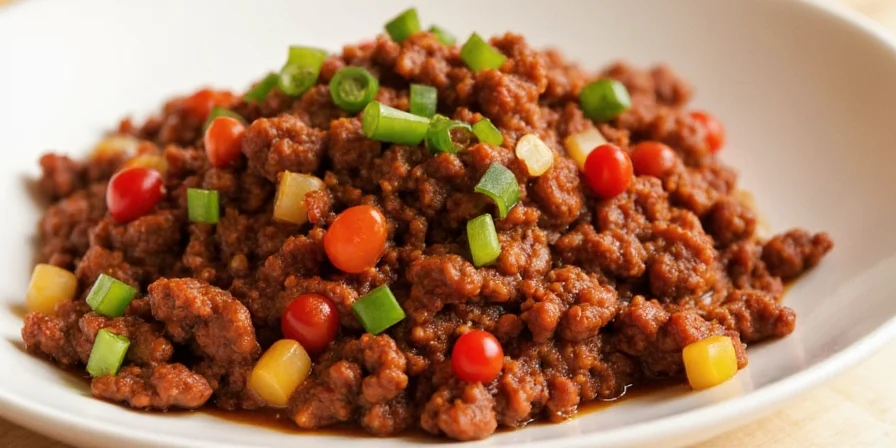
7. Star Anise + Tamarind Paste = Asian-Accented Kick
Want to take your chili with ground beef global? Try simmering a whole star anise pod during cooking and stirring in a teaspoon of tamarind paste for a tangy, exotic note.
- Taste Profile: Tangy, floral, slightly licorice-like
- Pro Tip: Remove the star anise before serving — it’s strong stuff!
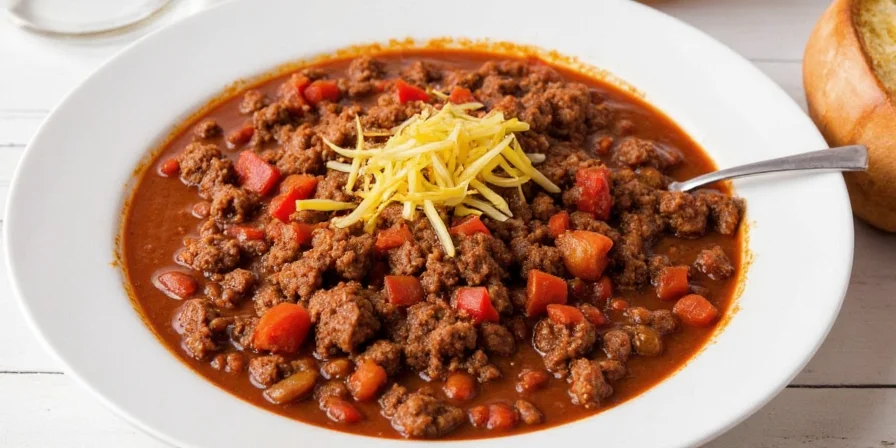
Bonus: How to Layer Spices Like a Pro
- Bloom First: Toast whole spices in oil before adding onions and meat.
- Simmer Slowly: Let your chili simmer for at least 45 minutes to allow flavors to meld.
- Finish with Freshness: A sprinkle of fresh herbs, citrus zest, or flaky salt can lift your chili dramatically at the end.
- Taste as You Go: Adjust seasoning midway and again before serving — it makes a difference!
Spice Timing Chart for Perfect Layering
| Spice Type | When to Add |
|---|---|
| Toasted Whole Spices | At start, in oil |
| Dried Chilies/Powders | After onions, before meat |
| Liquid Extracts | Toward end of cooking |
| Finishing Touches | Right before serving |
Final Thoughts: Don’t Fear the Unknown Spices
We get it — opening that spice drawer and seeing a dozen bottles labeled in languages you don’t speak can feel intimidating. But that’s where the magic lies. The next time you're making chili with ground beef, grab that bottle of smoked paprika, toss in a cinnamon stick, or drizzle in some tamarind paste. It’s all about curiosity and confidence in the kitchen.
So go ahead, spice it up — and let your chili do the talking!

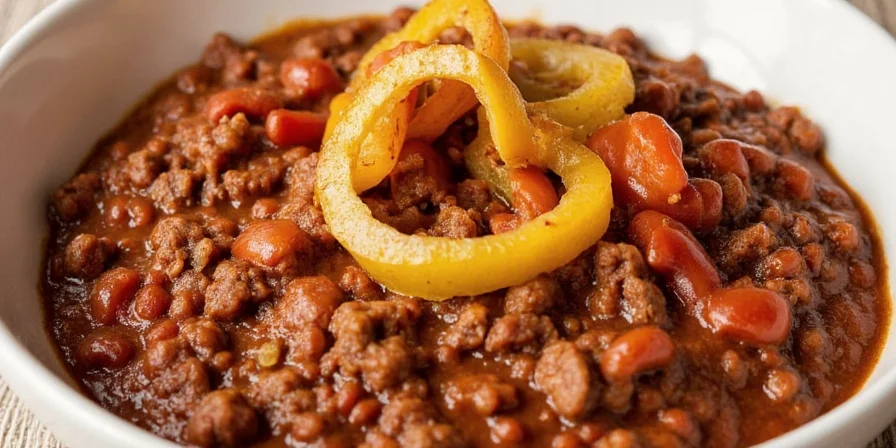









 浙公网安备
33010002000092号
浙公网安备
33010002000092号 浙B2-20120091-4
浙B2-20120091-4